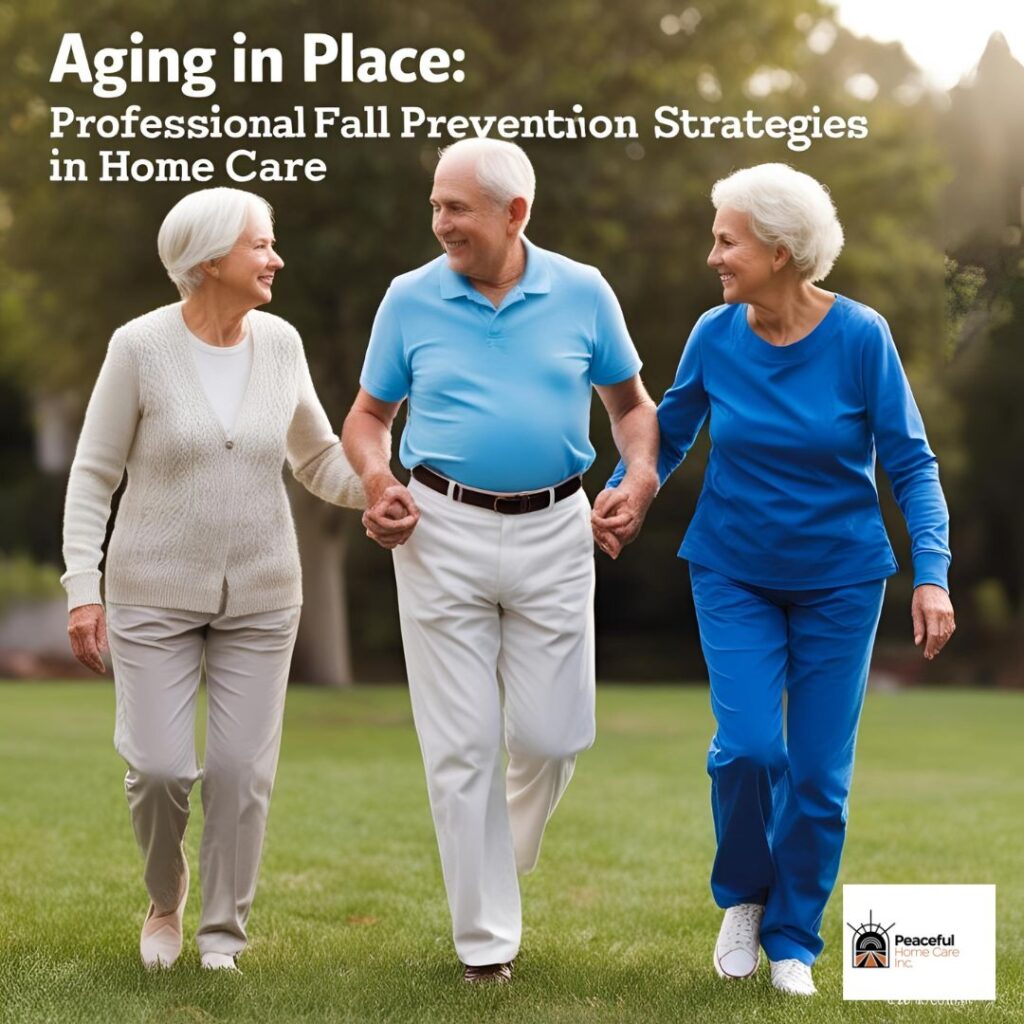Activities of Daily Living (ADLs) is crucial when it comes to supporting the health and independence of individuals—especially older adults or those with disabilities. At peaceful home healthcare, these are the essential tasks we prioritise and perform every day to take care of our seniors and elderly as they play a major role in determining the level of care our clients may need and how it enhances their emotional and mental being generally-no stones unturned.
What Are ADLs (you may ask)?
Activities of Daily Living (ADLs) are basic self-care tasks that are fundamental to independent living. ADLs encompass basic self-care tasks essential for everyday functioning in elderly and seniors. According to the Occupational Therapy Practice Framework, there are nine specific ADLs but they are categorically divided into two typically:
1. Basic ADLs
- Personal hygiene (bathing, grooming, oral care)
- Dressing oneself.
- Eating (ability to feed oneself).
- Toileting (using the restroom independently)
- Transferring (moving from bed to chair, standing up)
2. Instrumental ADLs (IADLs)
- Managing medications
- Handling finances
- Preparing meals
- Housekeeping and laundry
- Using transportation
- Shopping for groceries or essentials

Checklists for IADLs follow the same pattern, often with input from family or home health aides. While ADLs focus on basic self-care, IADLs assess an individual’s ability to interact with their environment and manage daily life tasks.
Why is Assessing of ADLsI and IADLs Important?
Activities of Daily Living (ADLs) help determine a person’s ability to live independently and are often used in:
- Healthcare planning and Determining Care Needs: Identifying the level of assistance required.
- Senior living eligibility assessments and Planning Rehabilitation: Setting goals for recovery and independence.
- Long-term care insurance qualification.
- Caregiver support planning.
- Monitoring Progress: Tracking improvements or declines in functionality.
- Making Housing Decisions: Assessing suitability for independent living or need for assisted living facilities- PMC
ADL Checklists
Using checklists can help families, caregivers, and healthcare providers assess the level of support someone needs. Here’s a sample basic Activities of Daily Living (ADLs) checklist:
| Task | Independent | Needs Some Help | Needs Full Help |
|---|---|---|---|
| Bathing | ✅ | ☐ | ☐ |
| Dressing | ✅ | ☐ | ☐ |
| Toileting | ☐ | ✅ | ☐ |
| Eating | ✅ | ☐ | ☐ |
| Transferring | ☐ | ✅ | ☐ |
| Walking | ✅ | ☐ | ☐ |
ADL Assessments
Our Professionals including occupational therapists, nurses, or physicians may use formal Activities of Daily Living (ADLs) assessments such as:
- Katz Index of Independence in ADLs: Developed in 1959, the Katz Index assesses six basic functions: bathing, dressing, toileting, transferring, continence, and feeding. Each function is scored as independent or dependent, providing a snapshot of an individual’s functional status.
- Lawton-Brody IADL Scale: This scale evaluates eight IADLs: using the telephone, shopping, food preparation, housekeeping, laundry, transportation, medication management, and financial management. It helps determine the level of assistance needed for community living.
- Barthel Index: The Barthel Index measures performance in 10 ADLs, including feeding, bathing, grooming, dressing, bowel and bladder control, toilet use, transfers, mobility, and stair climbing. Scores range from 0 to 100, with higher scores indicating greater independence.
- Functional Independence Measure (FIM): Our use of FIM assesses 18 items across six domains: self-care, sphincter control, mobility, locomotion, communication, and social cognition. Each item is scored on a 7-point scale, indicating the level of assistance required.
- Activities of Daily Living Questionnaire (ADLQ): The ADLQ is designed for individuals with cognitive impairments, particularly Alzheimer’s disease. We evaluates six areas: self-care, household care, employment and recreation, shopping and money, travel, and communication.
These tools provide structured ways to measure ability and guide decisions for in-home support, rehabilitation, or assisted living placement. We prioritise the general welfare of our clients ensuring they access full quality especially on their general home and health care assistance.
When to Consider a Formal (ADLs) Assessment.
You might want to explore an Activities of Daily Living (ADLs) assessment for your aging loved ones if:
- There is a noticeable change in physical or cognitive function.
- A loved one is recovering from illness or surgery.
- You’re planning for long-term care or insurance claims.
- You need support documentation for disability services.
Understanding Activities of Daily Living (ADLs) is key to ensuring every aging senior and elderly ones inour care receive the right level of care and general assistance at the right time. Whether you’re in need of a caregiver, a healthcare professional, or planning for your own future, we ensure you are staying informed and proactive about ADLs making a big difference in quality of life and independence.




